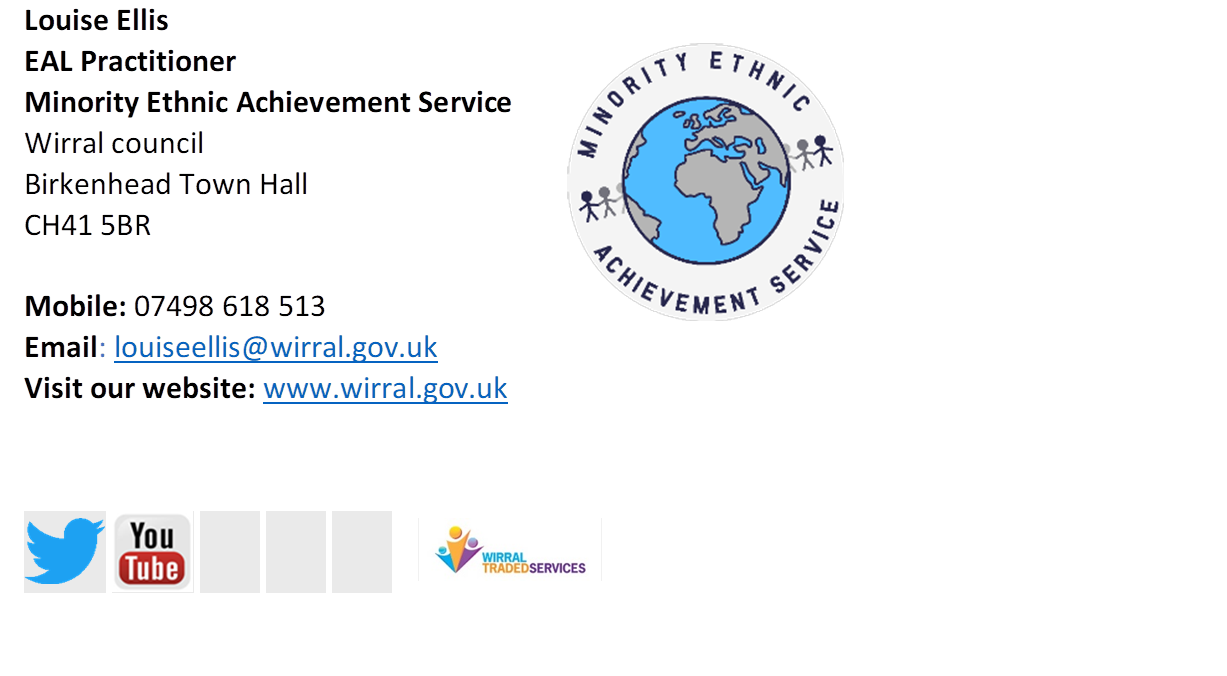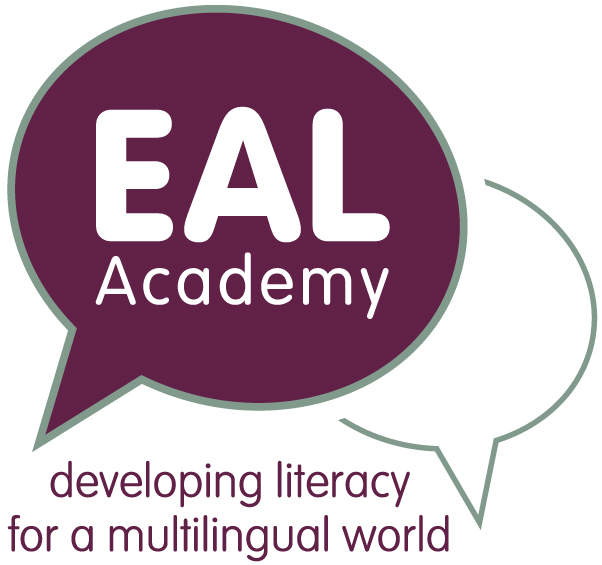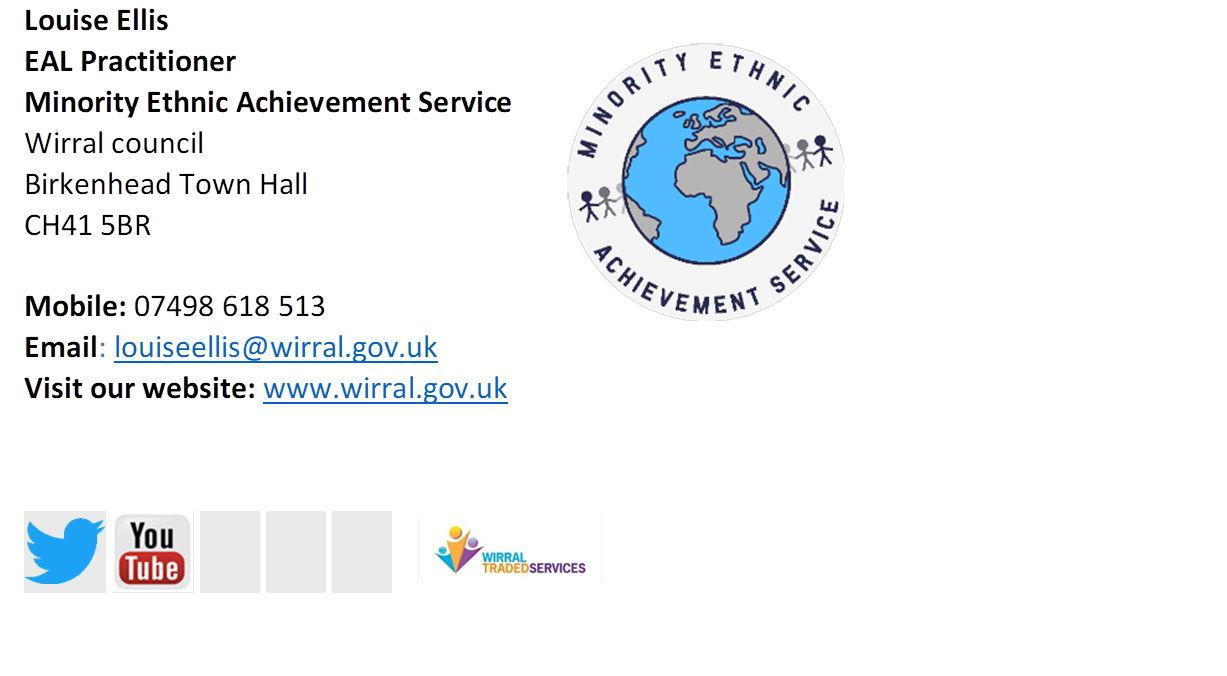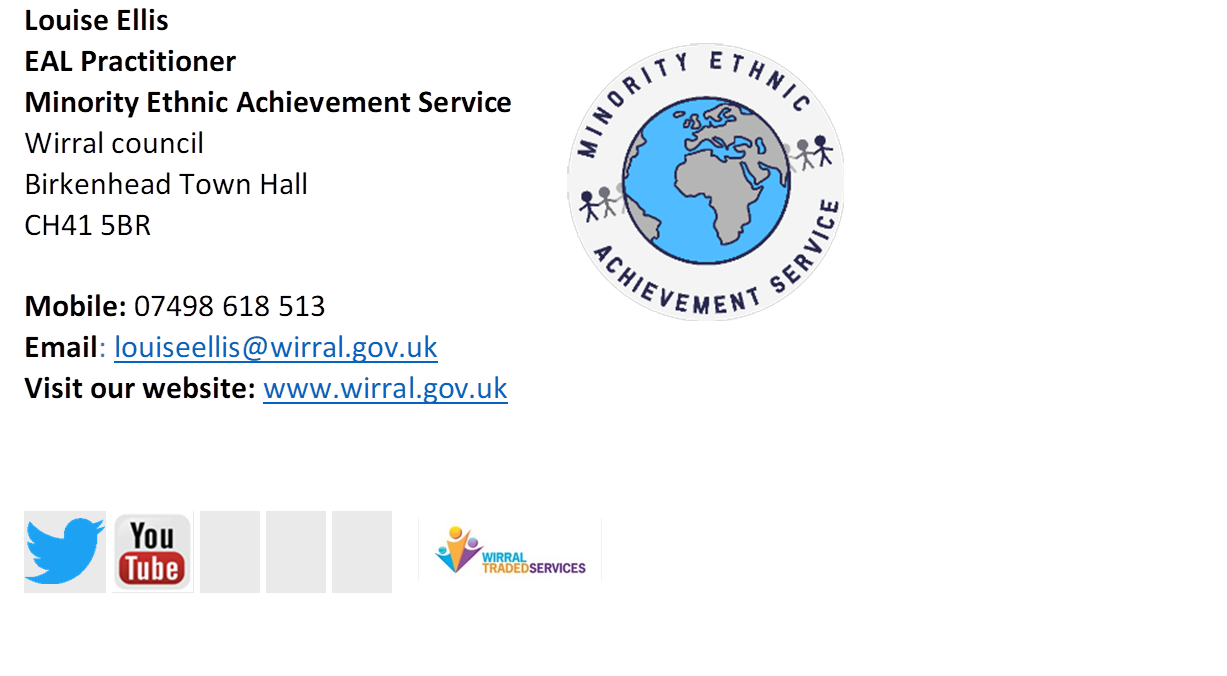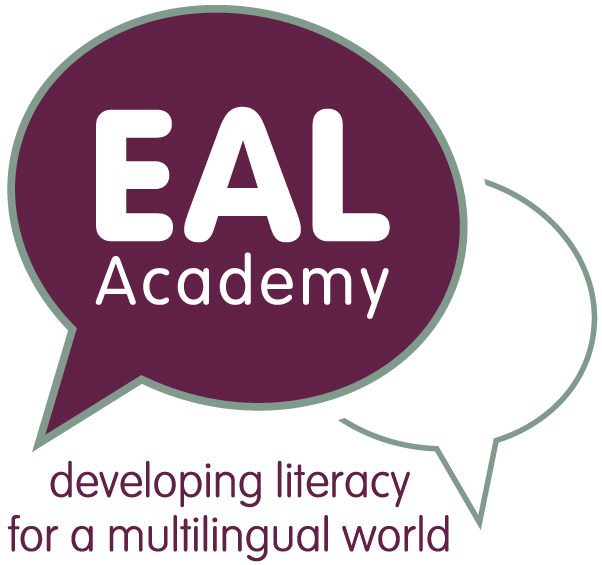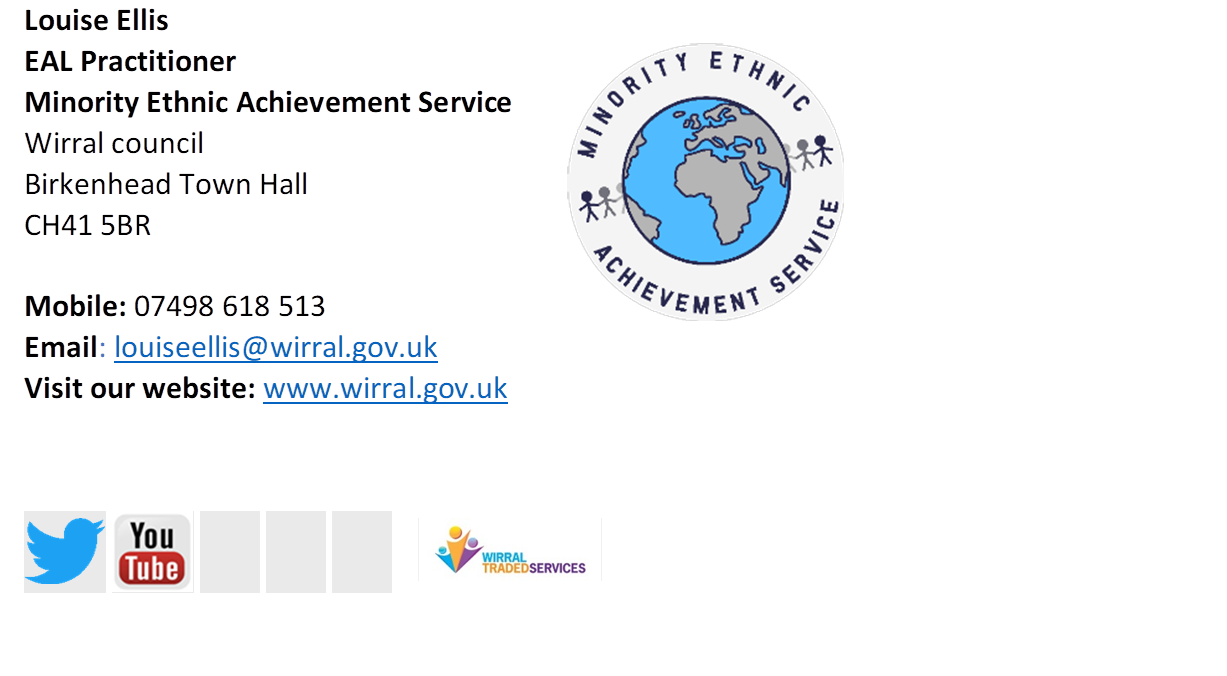Thoughts on GCSE English
Ellis, Louise
Good evening,
Not really sure if this is a request for advice, but it’s something that has been frustrating me for a while and I am not sure where to go.
Many of the students I support are really good at analysis. They have great ideas exploring connotations and making links across the text. They hit the AOs developing an informed personal response using textual references to support their interpretations. They can analyse how the writer uses language to create meaning and effects. But they can only do this after we have gone through the text and translated some unknown words.
I have been trying to teach them ways to work out meaning through words they do know - as it’s great having lots of scaffolding to access tasks in the classroom, but once they are in the exam, they will only have the paper.
For example, we looked at an extract from the AQA CGP booklet. I didn’t pre-teach any vocab as I wanted to see how they could work things out if they were in exam conditions. The idea was to look at how language is used to describe the weather. We went through the whole extract, but this is the beginning.
The wind rose suddenly. It was a bitter wind, a stinging wind, a wind that drowned all thoughts in a roaring cacophony of noise and fury. It was a tempest that barged across the barren, open moorland, and threw itself against the stoic stone walls of the cottage.
They couldn’t understand much at all. ☹ So we had to have a discussion.
- They struggled with the first sentence and ‘rose’. After a quick discussion about ‘rise’ and past tense/ thinking about ‘sunrise’ ‘a cake rising’ ‘rising from the dead/out of bed’ etc they got the idea it went ‘up’ and they got the idea of the wind getting quicker and stronger. This was helped as they knew the adverb ‘suddenly’ so they were able to make an informed guess.
- They recognised the writer wanted to emphasise ‘something’ about the wind due the repetition – but didn’t know what ‘bitter’ or ‘stinging’ meant. That said they guessed it was negative as the third wind ‘drowned all thoughts’ and they knew drowning was negative. They got the idea the wind was an overwhelming force– but more because of the structure of the sentence, than the language.
- Cacophony – no idea – but got it was noisy due to ‘roaring’ and made links that it was like a ferocious wild animal/ language to do with the noise of the storm.
- Fury – they made links to word families ‘furious’ and the clues in the rest of the text that the wind was angry/powerful.
- They broke down the last sentence to simply ‘It barged across the land and threw itself against the stone wall walls of the cottage’ in order to understand the sentence. They identified things like personification and the fact it was ‘violent’ as it ‘threw itself’ against a wall. They had no idea what barged meant but guessed if you were going to throw yourself against a wall, you would have to do it at speed and not let things get in your way. Many of the words ‘tempest, barren, moorland, stoic’ were discarded. They have to do this to try and make meaning but are worried they can’t do any deep analysis as they can’t ‘zoom’ in on many words and have to ignore many. Lots of the ‘analysis’ has to be surface level.
My concern is, the texts are still really inaccessible and the work above is really time consuming in an exam, but once they know the words, they do have great ideas.
One of my students got a 5 in the Literature mock exam and a 3 in the Language mock exam. This was obviously surprising and when I spoke to her about it, she said it was because they study the literature texts in class, so when she was in the exam she already knew what the words meant, and she could additionally pre-learn quotes and meaning to express her ideas. This makes sense!
This also reinforced my thoughts that if they had a glossary/ or were allowed to translate the texts, they can actually meet the AOs which they are actually being assessed on. The exam isn’t there to test their translation skills – but their ability to analyse/ infer/ interpret/make links/meaning etc.
I think what my question is, what can I do to try and change this? Do you think it would be fair for EAL children to have a glossary? Do you think there is any chance in Exam boards allowing a glossary? Is there anything I can do to help make the exams more accessible or do we continue to let really bright children fail?
I am aware of strategies we can use in the classroom, but what can we do when they have an unseen text in an exam?
Apologies if this is not the right forum for this type of question – but thankful if anyone has any ideas.
Kind regards,
Louise
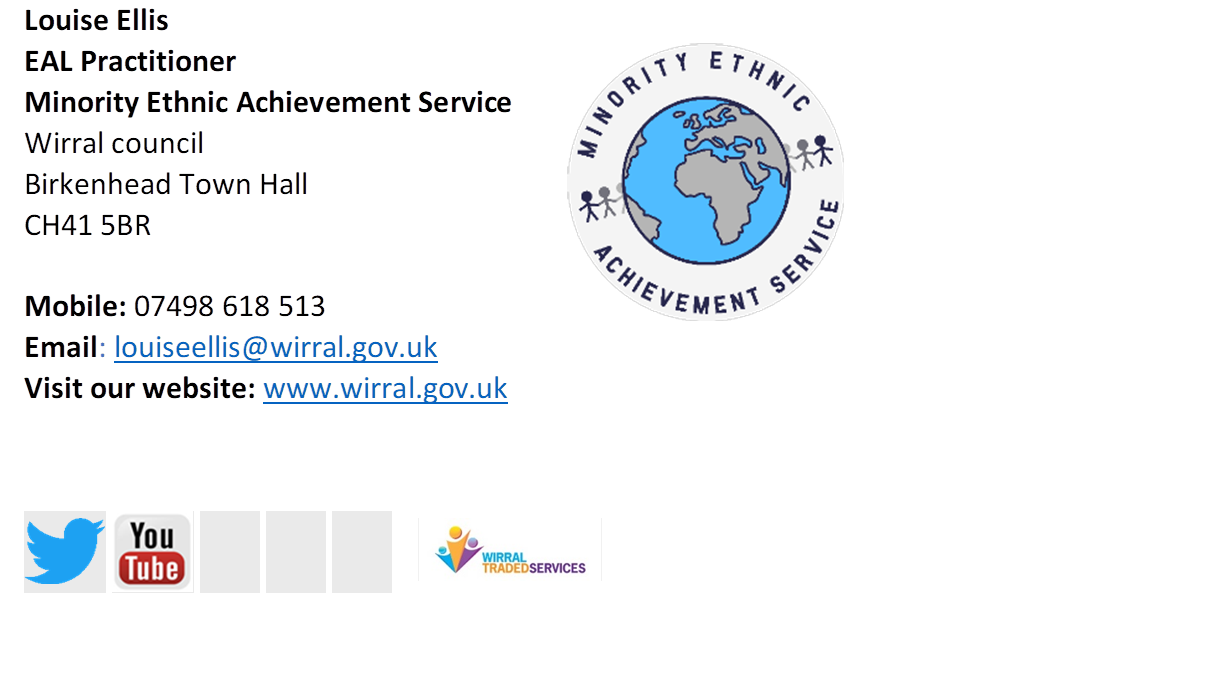
This email and any files transmitted with it are confidential and intended solely for the use of the individual or entity to whom they are addressed. If you have received this email in error please notify the system manager.
Graham Smith
--
This group is managed by NALDIC, the UK's EAL Professional Association. Please visit our website for further information: www.naldic.org.uk. Twitter: @EAL_naldic. NALDIC's Privacy Policy | https://naldic.org.uk/privacy-policy
National Association for Language Development in the Curriculum
A Registered Charity and Company Limited by Guarantee in England and Wales. Charity No 1110570. Company No 05159760
---
You received this message because you are subscribed to the Google Groups "EAL-Bilingual" group.
To unsubscribe from this group and stop receiving emails from it, send an email to eal-bilingua...@googlegroups.com.
To view this discussion on the web, visit https://groups.google.com/d/msgid/eal-bilingual/CWLP265MB528367216D8ACBF4C6D72F85FFFC9%40CWLP265MB5283.GBRP265.PROD.OUTLOOK.COM.
Frank Monaghan (NALDIC)
On 11 Jan 2023, at 23:12, Graham Smith <graham...@theealacademy.co.uk> wrote:
The exam boards are not going to change, but what you are doing is very good. The more you do it, the easier you will make it for your students.
On 11/01/2023 21:46 GMT 'Ellis, Louise' via EAL-Bilingual <eal-bi...@googlegroups.com> wrote:
Good evening,
Not really sure if this is a request for advice, but it’s something that has been frustrating me for a while and I am not sure where to go.
Many of the students I support are really good at analysis. They have great ideas exploring connotations and making links across the text. They hit the AOs developing an informed personal response using textual references to support their interpretations. They can analyse how the writer uses language to create meaning and effects. But they can only do this after we have gone through the text and translated some unknown words.
I have been trying to teach them ways to work out meaning through words they do know - as it’s great having lots of scaffolding to access tasks in the classroom, but once they are in the exam, they will only have the paper.
For example, we looked at an extract from the AQA CGP booklet. I didn’t pre-teach any vocab as I wanted to see how they could work things out if they were in exam conditions. The idea was to look at how language is used to describe the weather. We went through the whole extract, but this is the beginning.
The wind rose suddenly. It was a bitter wind, a stinging wind, a wind that drowned all thoughts in a roaring cacophony of noise and fury. It was a tempest that barged across the barren, open moorland, and threw itself against the stoic stone walls of the cottage.
They couldn’t understand much at all. ☹ So we had to have a discussion.
- They struggled with the first sentence and ‘rose’. After a quick discussion about ‘rise’ and past tense/ thinking about ‘sunrise’ ‘a cake rising’ ‘rising from the dead/out of bed’ etc they got the idea it went ‘up’ and they got the idea of the wind getting quicker and stronger. This was helped as they knew the adverb ‘suddenly’ so they were able to make an informed guess.
- They recognised the writer wanted to emphasise ‘something’ about the wind due the repetition – but didn’t know what ‘bitter’ or ‘stinging’ meant. That said they guessed it was negative as the third wind ‘drowned all thoughts’ and they knew drowning was negative. They got the idea the wind was an overwhelming force– but more because of the structure of the sentence, than the language.
- Cacophony – no idea – but got it was noisy due to ‘roaring’ and made links that it was like a ferocious wild animal/ language to do with the noise of the storm.
- Fury – they made links to word families ‘furious’ and the clues in the rest of the text that the wind was angry/powerful.
- They broke down the last sentence to simply ‘It barged across the land and threw itself against the stone wall walls of the cottage’ in order to understand the sentence. They identified things like personification and the fact it was ‘violent’ as it ‘threw itself’ against a wall. They had no idea what barged meant but guessed if you were going to throw yourself against a wall, you would have to do it at speed and not let things get in your way. Many of the words ‘tempest, barren, moorland, stoic’ were discarded. They have to do this to try and make meaning but are worried they can’t do any deep analysis as they can’t ‘zoom’ in on many words and have to ignore many. Lots of the ‘analysis’ has to be surface level.
My concern is, the texts are still really inaccessible and the work above is really time consuming in an exam, but once they know the words, they do have great ideas.
One of my students got a 5 in the Literature mock exam and a 3 in the Language mock exam. This was obviously surprising and when I spoke to her about it, she said it was because they study the literature texts in class, so when she was in the exam she already knew what the words meant, and she could additionally pre-learn quotes and meaning to express her ideas. This makes sense!
This also reinforced my thoughts that if they had a glossary/ or were allowed to translate the texts, they can actually meet the AOs which they are actually being assessed on. The exam isn’t there to test their translation skills – but their ability to analyse/ infer/ interpret/make links/meaning etc.
I think what my question is, what can I do to try and change this? Do you think it would be fair for EAL children to have a glossary? Do you think there is any chance in Exam boards allowing a glossary? Is there anything I can do to help make the exams more accessible or do we continue to let really bright children fail?
I am aware of strategies we can use in the classroom, but what can we do when they have an unseen text in an exam?
Apologies if this is not the right forum for this type of question – but thankful if anyone has any ideas.
Kind regards,
Louise
This email and any files transmitted with it are confidential and intended solely for the use of the individual or entity to whom they are addressed. If you have received this email in error please notify the system manager.--
This group is managed by NALDIC, the UK's EAL Professional Association. Please visit our website for further information: www.naldic.org.uk. Twitter: @EAL_naldic. NALDIC's Privacy Policy | https://naldic.org.uk/privacy-policy
National Association for Language Development in the Curriculum
A Registered Charity and Company Limited by Guarantee in England and Wales. Charity No 1110570. Company No 05159760
---
You received this message because you are subscribed to the Google Groups "EAL-Bilingual" group.
To unsubscribe from this group and stop receiving emails from it, send an email to eal-bilingua...@googlegroups.com.
To view this discussion on the web, visit https://groups.google.com/d/msgid/eal-bilingual/CWLP265MB528367216D8ACBF4C6D72F85FFFC9%40CWLP265MB5283.GBRP265.PROD.OUTLOOK.COM.
--
This group is managed by NALDIC, the UK's EAL Professional Association. Please visit our website for further information: www.naldic.org.uk. Twitter: @EAL_naldic. NALDIC's Privacy Policy | https://naldic.org.uk/privacy-policy
National Association for Language Development in the Curriculum
A Registered Charity and Company Limited by Guarantee in England and Wales. Charity No 1110570. Company No 05159760
---
You received this message because you are subscribed to the Google Groups "EAL-Bilingual" group.
To unsubscribe from this group and stop receiving emails from it, send an email to eal-bilingua...@googlegroups.com.
To view this discussion on the web, visit https://groups.google.com/d/msgid/eal-bilingual/1801446181.225627.1673478765413%40mailbusiness.ionos.co.uk.
N A L D I C the national subject association for EAL
NALDIC, Charteris Land 3.08, Moray House School of Education and Sport, University of Edinburgh, Holyrood Rd, Edinburgh, EH8 8AQ
Stuart Scott
To view this discussion on the web, visit https://groups.google.com/d/msgid/eal-bilingual/D2BCCB31-F394-4BB8-BC1D-CE2C86CDCE28%40naldic.org.uk.
Ellis, Louise
Thank you all for your responses.
It’s a relief that I’m doing the right things!
I love the idea of blanking out challenging words in an extract and seeing if they can still make meaning, so I am definitely going to try this. I think it will be a confidence booster – thank you Frank.
Stuart, I am a member of NALDIC, but not NATE, so that is something I will look into, especially as I like the idea of harassing the government, ha! But in all seriousness, I think it should change. It’s not a MFL, or an English as a Second Language exam where they are assessed on their ability to translate; it is meant to assess their ability to analyse the writer’s choices.
Maybe I am being too simplistic (and happy to be corrected) but it does seem very unfair that they are prevented from showing these skills. With further thought, perhaps a glossary would be unfair as that explains what the words mean which would be an advantage – but a translation of the text alongside the same question paper as the rest of the cohort seems like an even playing field to me. Maybe one day it may change. In the meantime, we will keep on developing their confidence, skills and vocabulary to tackle these papers.
Once again, thank you all for responding. I appreciate your feedback.
Kind regards,
Louise
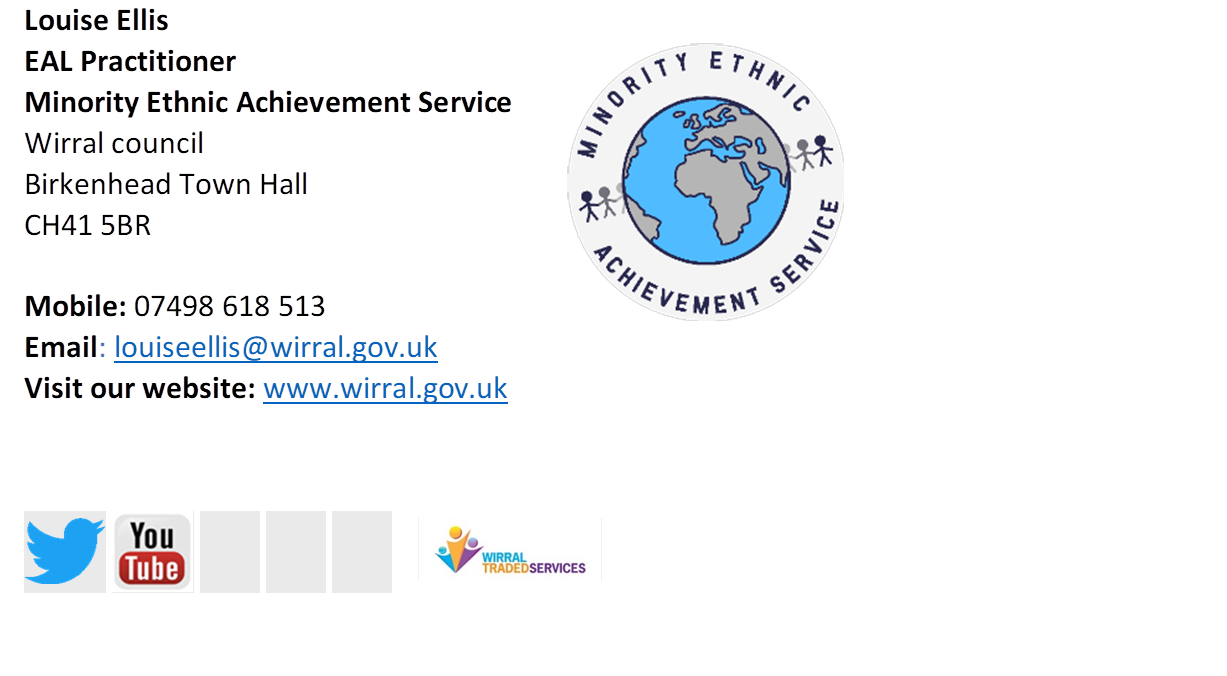
Stuart Scott
Diane Leedham
To view this discussion on the web, visit https://groups.google.com/d/msgid/eal-bilingual/CAEp7rS%3D8v3tYTy4DVGAqsCozKsADa%3DBc8cbRFHQUsp21dYfMPg%40mail.gmail.com.
Frank Monaghan (NALDIC)
On 12 Jan 2023, at 18:20, Diane Leedham <dale...@gmail.com> wrote:
From: Stuart Scott <stuart...@collaborativelearning.org>
Sent: 12 January 2023 10:30
To: Frank Monaghan (NALDIC) <f.mon...@naldic.org.uk>
Cc: Graham Smith <graham...@theealacademy.co.uk>; Ellis, Louise <louis...@wirral.gov.uk>; Ellis, Louise' via EAL-Bilingual <eal-bi...@googlegroups.com>
Subject: Re: [EAL-Bilingual;9520] Thoughts on GCSE English
We with the support of NATE and LATE are harassing the exam boards steadily but government interference means this process, like elsewhere, is very long drawn out. The erosion of continuous teacher/student assessment has made the exam paper far too impactful. Can I encourage everyone to join their professional subject association to add their voice. At NATE we have set up a multicultural/diversity committee and I will make sure that this is on their agenda.
You definitely are doing all the right things and resources/strategies to enable subject learning while learning English will hopefully continue to be developed. Sadly the opportunities at school level to plan and deliver and share strategies have almost disappeared. All the activities on the CL website were deveioped by this method when school focussed inset was supported by LA s and schools. For English do use the Teachit site because they are EAL conscious. Our most recent initiatives to support English are mainly at KS3.
Stuart
Collaborative Learning Project. A teacher network sharing talk for learning resources.
17 Barford Street, London N1 0QB 44 207 226 8885
On Thu, Jan 12, 2023 at 12:04 AM Frank Monaghan (NALDIC) <f.mon...@naldic.org.uk> wrote:
Hi Louise,
I agree with Graham: the boards won’t change and you are doing exactly the right thing.
All I can suggest is that you do more of the same but maybe take a similar text and remove some ‘problem’ words to show them that they can still get the overall meaning and then give them the confidence to blag it! EAL learners can be very reluctant to take that sort of risk, but what do they have to lose by giving it a go?!
Good luck to you and them,
Frank
On 11 Jan 2023, at 23:12, Graham Smith <graham...@theealacademy.co.uk> wrote:
The exam boards are not going to change, but what you are doing is very good. The more you do it, the easier you will make it for your students.
On 11/01/2023 21:46 GMT 'Ellis, Louise' via EAL-Bilingual <eal-bi...@googlegroups.com> wrote:
Good evening,
Not really sure if this is a request for advice, but it’s something that has been frustrating me for a while and I am not sure where to go.
Many of the students I support are really good at analysis. They have great ideas exploring connotations and making links across the text. They hit the AOs developing an informed personal response using textual references to support their interpretations. They can analyse how the writer uses language to create meaning and effects. But they can only do this after we have gone through the text and translated some unknown words.
I have been trying to teach them ways to work out meaning through words they do know - as it’s great having lots of scaffolding to access tasks in the classroom, but once they are in the exam, they will only have the paper.
For example, we looked at an extract from the AQA CGP booklet. I didn’t pre-teach any vocab as I wanted to see how they could work things out if they were in exam conditions. The idea was to look at how language is used to describe the weather. We went through the whole extract, but this is the beginning.
The wind rose suddenly. It was a bitter wind, a stinging wind, a wind that drowned all thoughts in a roaring cacophony of noise and fury. It was a tempest that barged across the barren, open moorland, and threw itself against the stoic stone walls of the cottage.
They couldn’t understand much at all. ☹ So we had to have a discussion.
- They struggled with the first sentence and ‘rose’. After a quick discussion about ‘rise’ and past tense/ thinking about ‘sunrise’ ‘a cake rising’ ‘rising from the dead/out of bed’ etc they got the idea it went ‘up’ and they got the idea of the wind getting quicker and stronger. This was helped as they knew the adverb ‘suddenly’ so they were able to make an informed guess.
- They recognised the writer wanted to emphasise ‘something’ about the wind due the repetition – but didn’t know what ‘bitter’ or ‘stinging’ meant. That said they guessed it was negative as the third wind ‘drowned all thoughts’ and they knew drowning was negative. They got the idea the wind was an overwhelming force– but more because of the structure of the sentence, than the language.
- Cacophony – no idea – but got it was noisy due to ‘roaring’ and made links that it was like a ferocious wild animal/ language to do with the noise of the storm.
- Fury – they made links to word families ‘furious’ and the clues in the rest of the text that the wind was angry/powerful.
- They broke down the last sentence to simply ‘It barged across the land and threw itself against the stone wall walls of the cottage’ in order to understand the sentence. They identified things like personification and the fact it was ‘violent’ as it ‘threw itself’ against a wall. They had no idea what barged meant but guessed if you were going to throw yourself against a wall, you would have to do it at speed and not let things get in your way. Many of the words ‘tempest, barren, moorland, stoic’ were discarded. They have to do this to try and make meaning but are worried they can’t do any deep analysis as they can’t ‘zoom’ in on many words and have to ignore many. Lots of the ‘analysis’ has to be surface level.
My concern is, the texts are still really inaccessible and the work above is really time consuming in an exam, but once they know the words, they do have great ideas.
One of my students got a 5 in the Literature mock exam and a 3 in the Language mock exam. This was obviously surprising and when I spoke to her about it, she said it was because they study the literature texts in class, so when she was in the exam she already knew what the words meant, and she could additionally pre-learn quotes and meaning to express her ideas. This makes sense!
This also reinforced my thoughts that if they had a glossary/ or were allowed to translate the texts, they can actually meet the AOs which they are actually being assessed on. The exam isn’t there to test their translation skills – but their ability to analyse/ infer/ interpret/make links/meaning etc.
I think what my question is, what can I do to try and change this? Do you think it would be fair for EAL children to have a glossary? Do you think there is any chance in Exam boards allowing a glossary? Is there anything I can do to help make the exams more accessible or do we continue to let really bright children fail?
I am aware of strategies we can use in the classroom, but what can we do when they have an unseen text in an exam?
Apologies if this is not the right forum for this type of question – but thankful if anyone has any ideas.
Kind regards,
Louise
Diane Leedham
On 12 Jan 2023, at 23:07, Frank Monaghan (NALDIC) <f.mon...@naldic.org.uk> wrote:
Ellis, Louise
Thank you so much for your comprehensive response, Diane.
There is so much great advice in there and I intend to use it. I love the idea of using the 5ws for them to get the gist. I am sure they will see they understand more about the text than they realise. Explicitly using the rubric to navigate around the text is a really good idea. I have read your email lots of times to get my head around all the good advice! It is really useful.
I’ve adapted (what I hope) is a user friendly rubric for the 2 language papers which I am happy to share in case it helps anyone else who is following the thread. I hope it’s correct!
Thank you again for taking the time to respond. I definitely feel better armed to help prepare my students.
Kind regards,
Louise
